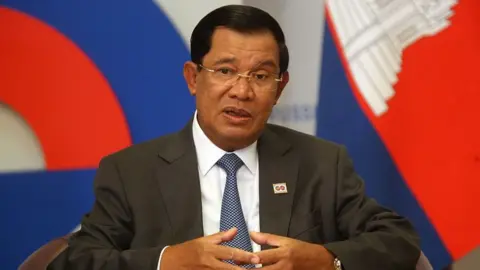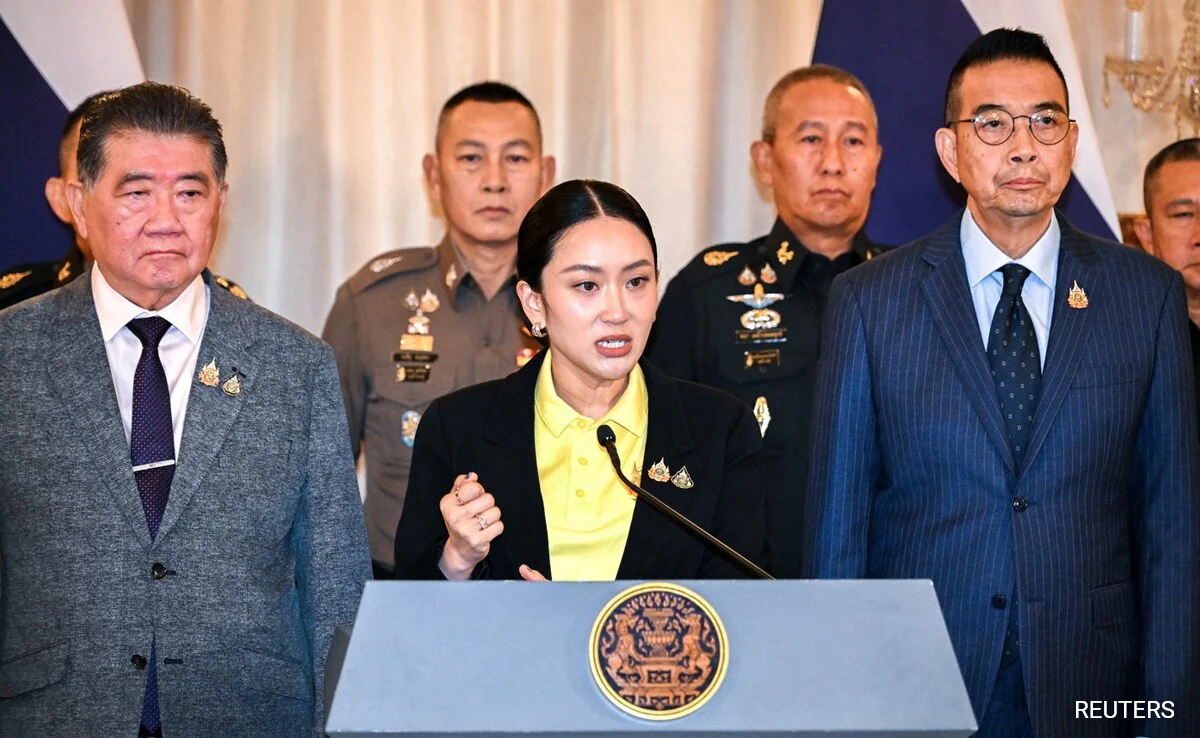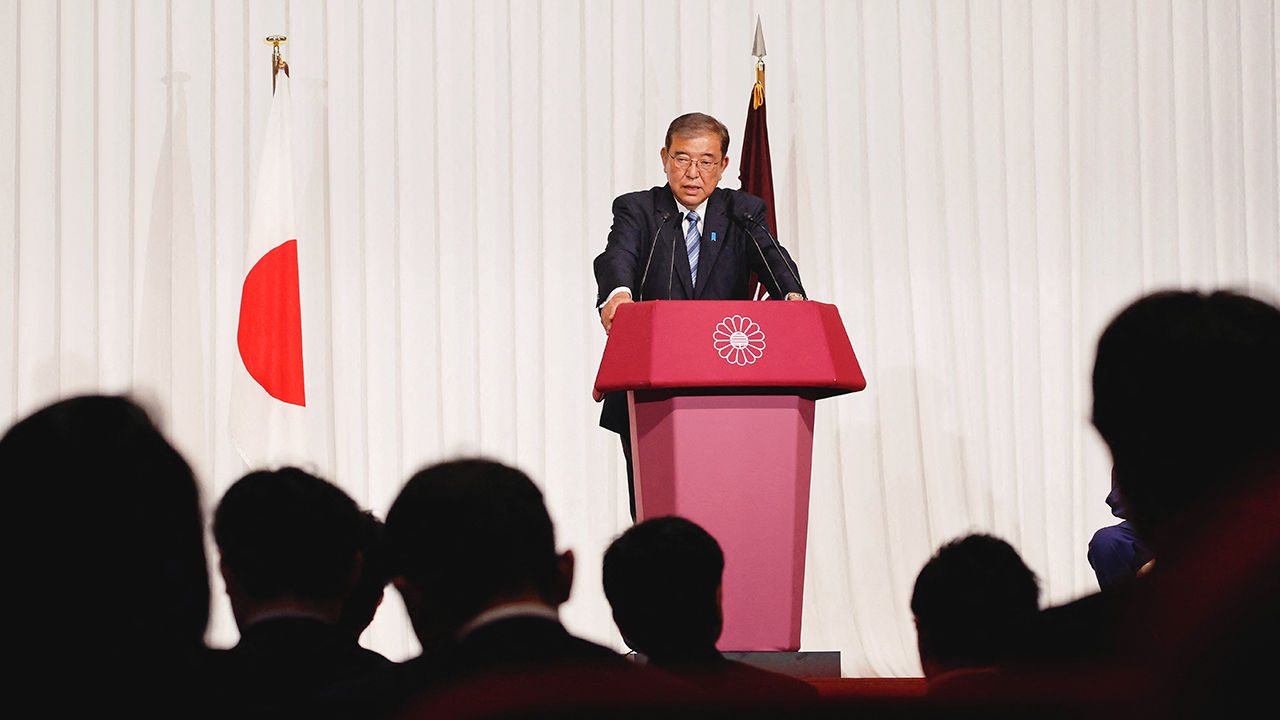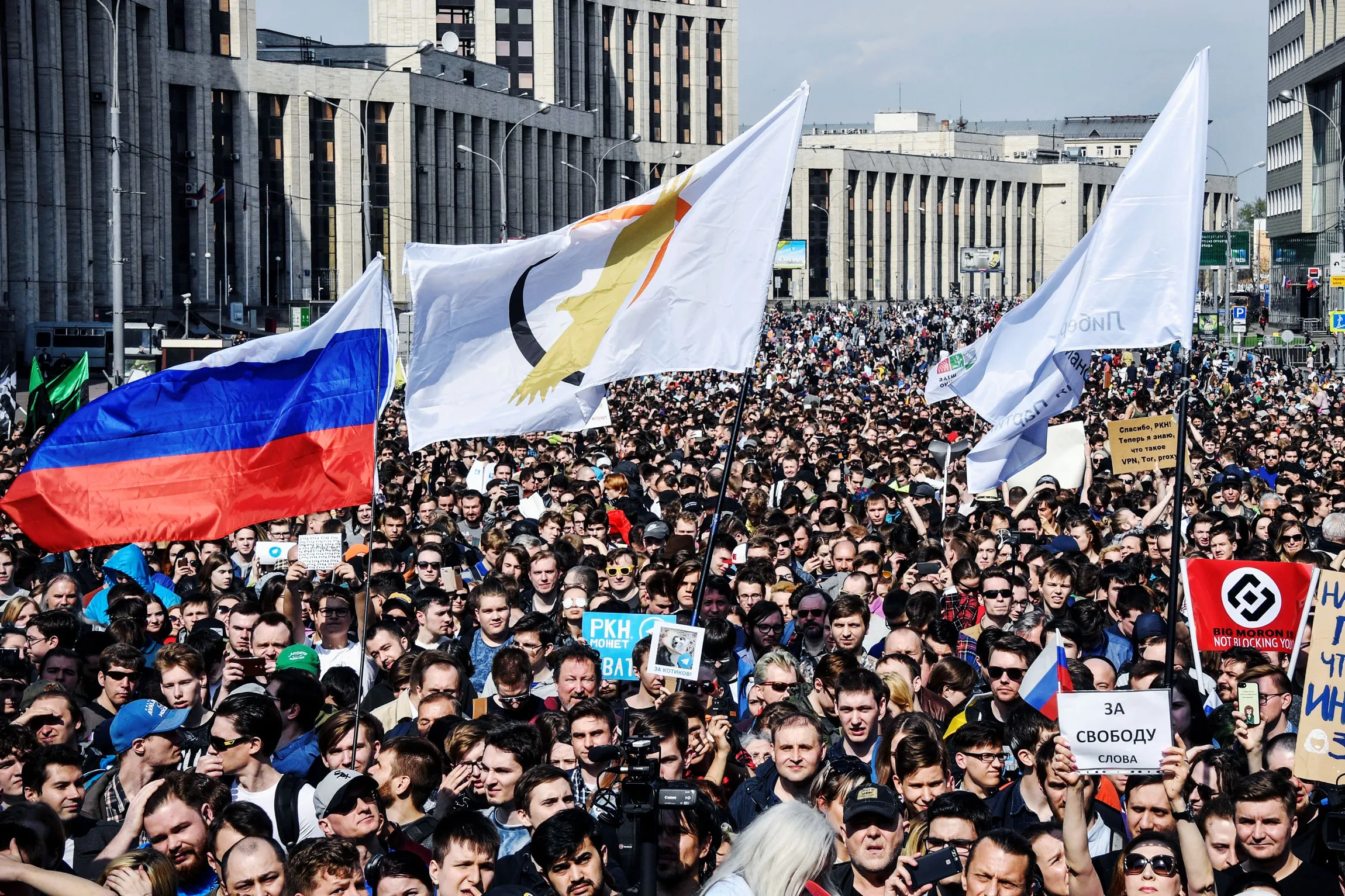In July 2023, Cambodia’s general election made headlines worldwide, not for its suspense but for its predictability. The Cambodian People’s Party (CPP), led by longtime Prime Minister Hun Sen, secured a landslide victory, claiming 120 of the 125 available parliamentary seats. This outcome, however, wasn’t a testament to overwhelming public support but rather a carefully orchestrated political maneuver that left little room for opposition. Let’s unpack the events, implications, and controversies surrounding this election, exploring how decades of strategic consolidation culminated in this moment and what it means for Cambodia’s future.
The 2023 Election: A Foregone Conclusion
The Cambodian election on July 23, 2023, was described by critics as a “sham” and a “farce of democracy.” With an 84.6% voter turnout, the CPP claimed 78–80% of the votes, a figure that reflects not just political dominance but the absence of any viable opposition. The National Election Committee, accused of bias, disqualified the Candlelight Party—the only group capable of posing a challenge—on a technicality, ensuring the CPP faced no real competition.
Why Was the Opposition Sidelined?
The Candlelight Party, seen as the spiritual successor to the dissolved Cambodia National Rescue Party (CNRP), was barred from participating due to paperwork issues. This wasn’t an isolated incident but part of a pattern. In 2017, the CNRP was dissolved by Cambodia’s courts after gaining significant traction, and its leaders faced imprisonment or exile. This systematic suppression has left the CPP unchallenged, turning elections into a formality.
A History of Control
Hun Sen, Asia’s longest-serving non-royal leader, has ruled Cambodia for nearly four decades. His journey began as a Khmer Rouge commander in the 1970s, followed by a defection to Vietnam and a rise to power in the Hanoi-installed government in 1979. Over the years, he’s mastered the art of political survival, using a mix of co-option, legal maneuvering, and outright intimidation to maintain control. The 2023 election was no exception, with the CPP’s vast resources and state-backed machinery ensuring a predictable outcome.
The Mechanics of a Landslide Victory
How does a single party secure such an overwhelming victory in a nominally democratic system? The answer lies in a combination of strategic suppression, media control, and voter intimidation. Let’s break it down:
- Opposition Disqualification: By barring the Candlelight Party, the CPP ensured that the 17 other parties in the race were minor players with little public recognition or resources.
- Media Suppression: Outlets like Voice of Democracy, one of Cambodia’s last independent media voices, were shut down before the election, limiting critical coverage.
- Voter Intimidation: Hun Sen’s Telegram message warning voters who spoiled ballots to “confess” or face “legal consequences” sent a chilling message. Many voters felt compelled to participate, knowing their choices were limited.
- State Resources: The CPP’s access to state funds and infrastructure gave it an unmatched advantage in campaign visibility and outreach.
The Numbers Behind the Victory
The final tally, announced by the National Election Committee on August 5, 2023, confirmed the CPP’s dominance:
| Party | Seats Won | Popular Votes |
|---|---|---|
| Cambodian People’s Party (CPP) | 120 | 6,398,311 |
| Funcinpec Party | 5 | 716,490 |
| Other 16 Parties | 0 | 0 |
With 8.2 million ballots cast, including 440,154 voided votes, the CPP’s grip on power was undeniable. But these numbers tell only part of the story—behind them lies a system designed to eliminate competition.
A Generational Shift: Hun Manet Takes the Stage
The 2023 election wasn’t just about maintaining the CPP’s dominance; it was a pivotal moment in a planned transition of power. Days after the election, Hun Sen announced his resignation, paving the way for his eldest son, Hun Manet, to become prime minister on August 22, 2023. This move, long anticipated since Hun Sen endorsed Manet in 2021, marked a dynastic handover in a country where family ties often dictate political power.
Who Is Hun Manet?
Hun Manet, 45, is a West Point graduate with a master’s from NYU and a PhD from the University of Bristol, all in economics. As the commander of the Royal Cambodian Army, he’s been groomed for leadership, rising rapidly through military ranks. Despite his Western education, experts like Astrid Norén-Nilsson from Lund University suggest that Manet’s political outlook aligns closely with his father’s, meaning little change in Cambodia’s authoritarian trajectory.
What Does This Mean for Cambodia?
The transition to Hun Manet represents a broader generational shift within the CPP. Younger leaders, many educated abroad, are taking ministerial roles, but their inexperience raises concerns. For instance, the new defense minister, Tea Seiha, and interior minister, Sar Sokha, are sons of CPP loyalists, prompting fears of entrenched elitism and continued corruption. As one Cambodian voter, Mao Ny Sai, remarked outside a polling station, “People know little about Hun Manet’s plans,” highlighting the uncertainty surrounding this new era.
The International Response: Condemnation and Apathy
The 2023 election drew sharp criticism from Western nations and human rights groups. The U.S. and EU refused to send observers, citing the election’s lack of fairness. The U.S. imposed visa restrictions on individuals who “undermined democracy” and paused foreign assistance programs. Human Rights Watch called the election a mockery, while the Asian Network for Free Elections pointed to the National Election Committee’s “clear bias” toward the CPP.
Why the Criticism?
The international community’s concerns stem from Cambodia’s slide into autocracy under Hun Sen. Since the 2013 election, where the CNRP nearly toppled the CPP, Hun Sen intensified his crackdown on dissent. The dissolution of the CNRP, the jailing of opposition leader Kem Sokha, and the silencing of independent media have created a one-party state in all but name. Yet, Cambodia’s alignment with China, a major investor, has shielded it from significant repercussions.
China’s Role in Cambodia’s Politics
Under Hun Sen, Cambodia has grown closer to China, receiving billions in development aid and loans. After the 2023 election, Chinese President Xi Jinping personally congratulated Hun Sen, signaling continued support. This relationship complicates Western efforts to push for democratic reforms, as China’s backing gives Cambodia leverage to ignore international criticism.
The Human Cost: Voices of the Cambodian People
Behind the political maneuvering, ordinary Cambodians bear the weight of this system. I recall a conversation with a Cambodian friend, Srey, who runs a small shop in Phnom Penh. “We vote because we have to,” she told me, her voice tinged with resignation. “But it’s not like we have a choice. It’s always the same.” Her words echo the sentiment of many who feel trapped in a system where dissent is risky, and change seems impossible.
Stability vs. Freedom
For some, like Nan Sy, a former lawmaker quoted in AP News, stability is paramount. “Without stability, we cannot talk about education or development,” he said. But this stability comes at a cost. Economic growth has lifted Cambodia to lower middle-income status, but inequality, corruption, and environmental degradation—such as widespread deforestation—persist. The CPP’s focus on infrastructure, like the controversial Funan Techo Canal, often benefits elites while displacing communities.
The Silent Protest
Despite the risks, some Cambodians expressed dissent by spoiling their ballots. Social media posts showed torn or defaced ballots, a quiet act of defiance against a system that offered no real choice. Hun Sen’s warning to these voters underscored the regime’s intolerance for even symbolic resistance.
Pros and Cons of the CPP’s Dominance
To understand the broader implications, let’s weigh the pros and cons of the CPP’s unchallenged rule:
Pros:
- Stability: Decades of CPP rule have brought relative peace after years of civil war and Khmer Rouge atrocities.
- Economic Growth: Cambodia’s economy has grown, with infrastructure projects boosting connectivity.
- Foreign Investment: Strong ties with China have fueled development, from roads to airports.
Cons:
- Lack of Democracy: Suppression of opposition and media stifles free expression.
- Corruption: Cronyism and land grabbing have widened inequality.
- Human Rights Concerns: Political prisoners and intimidation undermine personal freedoms.
Comparing Cambodia’s Elections to Regional Peers
How does Cambodia’s 2023 election stack up against other Southeast Asian nations? Let’s compare:
| Country | Election Year | Ruling Party Dominance | Opposition Status | International Response |
|---|---|---|---|---|
| Cambodia | 2023 | Strong (CPP) | Suppressed (Candlelight Party banned) | Criticized as unfree by U.S., EU |
| Thailand | 2023 | Contested (Military-backed parties) | Viable but restricted | Mixed, with concerns over junta influence |
| Malaysia | 2022 | Competitive | Strong opposition presence | Generally accepted as fair |
Cambodia’s election stands out for its lack of competition, a stark contrast to Malaysia’s vibrant democracy or Thailand’s contested political landscape.
People Also Ask (PAA) Section
Here are answers to common questions about the 2023 Cambodian election, drawn from Google’s PAA:
Why Was the Cambodian Election Criticized?
The election was criticized for its lack of fairness, with the main opposition disqualified and media suppressed, creating a one-party race. Western nations called it a “farce,” citing Hun Sen’s authoritarian tactics.
Who Is Hun Manet?
Hun Manet, Hun Sen’s eldest son, is Cambodia’s new prime minister, appointed in August 2023. A West Point graduate and army chief, he’s part of a generational shift in the CPP.
What Role Does China Play in Cambodian Politics?
China is a major ally, providing investment and diplomatic support. This relationship has helped Cambodia deflect Western criticism of its elections.
Where Can I Learn More About Cambodia’s Political System?
For detailed insights, check reputable sources like Human Rights Watch or Al Jazeera for reports on Cambodia’s elections and governance.
FAQ Section
1. Why did Hun Sen step down as prime minister?
Hun Sen announced his resignation to transfer power to his son, Hun Manet, as part of a planned dynastic succession, ensuring the CPP’s continued dominance.
2. Is Cambodia a democracy?
While Cambodia holds elections, they are widely regarded as undemocratic due to opposition suppression and lack of free media, making it a de facto one-party state.
3. What are the best tools for staying updated on Cambodian politics?
Reliable sources include international news outlets like BBC News, AP News, and The Guardian for unbiased reporting on Cambodian elections.
4. How does Hun Manet’s leadership differ from his father’s?
While Hun Manet’s Western education raised hopes for liberalization, experts believe he will maintain his father’s authoritarian policies, with no major shifts expected.
5. What can Cambodians do to push for democracy?
Cambodians face risks in protesting, but small acts like spoiling ballots show resistance. International advocacy and support for independent media could amplify their voices.
Looking Ahead: Cambodia’s Future Under Hun Manet
As Hun Manet takes the helm, Cambodia stands at a crossroads. Will he carve out a new path, or will he continue his father’s legacy of control? The 2023 election, with its landslide victory for the CPP, was less about public will and more about a system designed to perpetuate power. For Cambodians like Srey, the hope for change feels distant, but the resilience of those who quietly protest suggests that the desire for a freer future persists.
For those interested in Cambodia’s trajectory, staying informed through credible sources and supporting organizations like Amnesty International can shed light on the ongoing struggle for democracy. The story of Cambodia’s 2023 election isn’t just about a landslide—it’s about a nation grappling with the balance between stability and freedom, and a new generation stepping into a tightly controlled spotlight.



